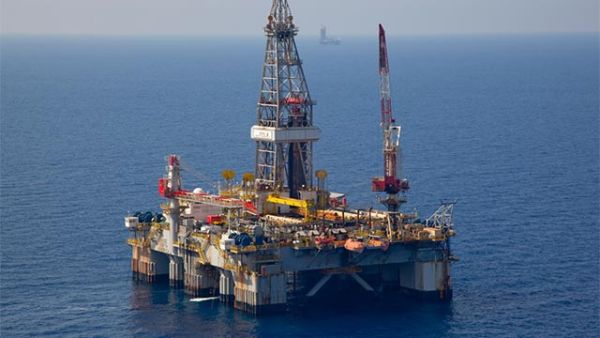The Israeli Cabinet’s latest approval on development plans of its offshore gas fields will not necessarily impact Lebanon’s plans to extract and sell its potential gas reserves in the future, said Crystol Energy Director Carole Nakhle at an energy conference Wednesday.
“I am not very much worried from competition by Israel because big oil companies won’t be much encouraged to invest there out of fear of a hostile reaction from Arab countries in which these firms have big investments,” she told The Daily Star on the sidelines of a conference organized by the Lebanese Center for Policy Studies.
The conference aimed at discussing the impacts of lower oil prices on the Middle East.
Nakhle said that political risks are also high in Israel which will not encourage big companies to go and invest money there.
She explained that Israel has two choices when it comes to selling its gas reserves. It can either transport its natural gas reserves through pipelines to different neighboring countries or it can opt to turn natural gas into Liquefied Natural Gas which facilitates its export to Asia and other places as well.
“The only neighboring country to which Israel can transport its natural gas through pipeline is Egypt which may not be much interested in importing gas after its discovery of Zohr natural gas field,” she said. “Moreover, the transformation of natural gas to LNG costs a lot of money and investors may not be interested in doing so in Israel,” she added.
However, Nakhle urged the government to issue two decrees that would faciliate the first licensing round for offshore gas exploration in Lebanon’s exclusive economic zone.
“We need to pass these two decrees as soon as possible to encourage big companies to come and invest in this sector in Lebanon,” she said.
Energy and Water Minister Arthur Nazarian has on many occasions warned that international oil companies could lose interest in bidding for oil and gas exploration in Lebanon if the government fails to speed up licensing procedures.
The first licensing round was postponed in August 2014 for the fifth time due to political disagreements over the decrees pertaining to the designation of blocks that would be open for bidding and the terms of a draft on the Exploration and Production Agreement. “We need a proper legislative framework for this sector for us to attract international oil companies,” said Nakhle.
Meanwhile, Graham Clevett, CEO at IPA Advisory Ltd., spoke about the impact of the drop in oil prices on regional countries.
He said big oil exporters such as Saudi Arabia, Iran, Iraq, Qatar and Oman face pressure for significant budget cuts. “For instance, Kuwait’s budget earlier this year was based on $45 per barrel oil price and projected a drop in spending of 18 percent,” he said.
He added that, on the other hand, countries that faced unrest (Arab spring) will have to maintain a high level of social and security spending.
Moreover, he said, the actual impact of oil price drop is filtering slowly in the wealthier countries which are drawing down their financial reserves not slashing budgets.
Clevett said that GCC countries are maintaining high levels of capital spending and they are mostly keeping planned infrastructure projects on track. “Countries with large financial reserves such as Qatar, Saudi Arabia and the UAE are in a better place to weather the downturn than Bahrain and Oman whose debt burden is expected to grow if oil prices remain low,” he added.
By Dana Halawi








